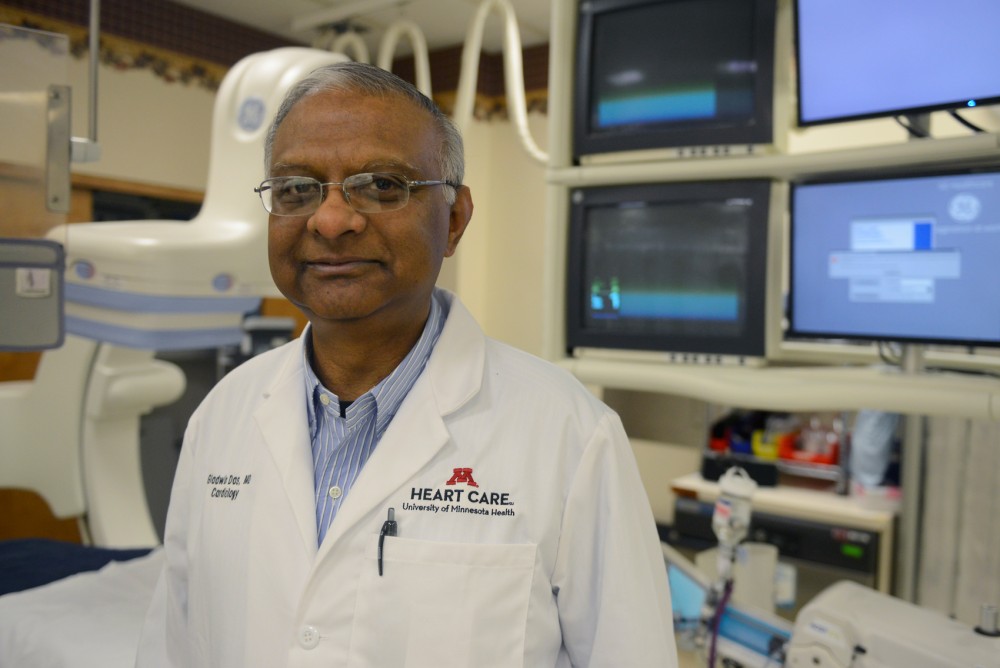Sally McNamee went to the hospital in 2007 under the assumption she had a bad case of pneumonia.
She left the emergency room with a congestive heart failure diagnosis, a condition she now treats using a battery-powered implanted defibrillator.
Though her device keeps her alive, University of Minnesota researchers are testing a new method that could make it easier for the heart to pump blood.
The device, called the Parachute, is in clinical testing now, said University Medicine Associate Professor and Interventional-Cardiology Hybrid Programs director Dr. Gladwin Das.
Though he said surgeons use it abroad, positive results could mean the Parachute is approved for future use in the United States.
Scarred tissue from heart disease and attack can make it harder for a person’s heart to pump blood efficiently, Das said. Parachute separates disfigured and healthy tissue to expand the heart’s left ventricle and take pressure off the heart.
So far, clinical testing has shown patients with the implant feel some relief from shortness of breath and have an easier time performing day-to-day activities, he said.
Currently, patients are often fitted with battery-powered mechanisms, like McNamee’s defibrillator implant.
The device works like a pacemaker to reset her heart if it beats irregularly or too fast, she said.
“You can see it coming out of skin, but most of the time I forget it’s there,” McNamee said. “It’s evident people can see it, but sometimes that’s just a way to start a conversation.”
The Parachute isn’t battery-powered and is installed through a vein instead of during open heart surgery, Das said.
Heart disease is the No. 2 killer of Minnesotans, taking more than 7,500 lives last year.
People who smoke, are obese, maintain a poor diet and don’t exercise are at greater risk of heart disease, University Epidemiology and Community Health Professor Jim
Pankow said, adding that increased smoking and high-fat diets led to peak heart disease rates in the 1960s and ’70s.
Those living with heart disease are at risk of heart attack.
Heart attacks often cause a person’s heart to weaken, leading to heart failure, which affects about six million people in the states, Das said.
But he said an estimated 100,000 Americans could benefit annually from the Parachute device if it becomes a nationwide norm.
“They can swim, they can go fishing, they can do whatever they want without being restricted,” he said.


